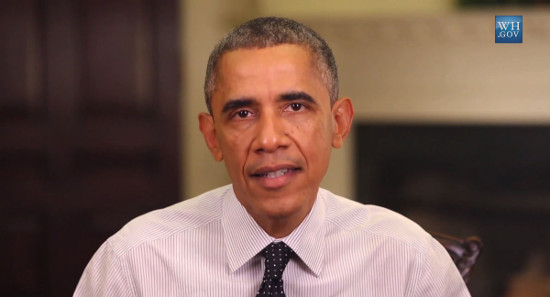Federal Communications Commission Chairman Tom Wheeler proposed Wednesday new FCC rules that would protect and preserve the Internet’s Net Neutrality.
The proposals, coming after years of debate and an intense campaign of grass-roots community organizing and activist pressure on the FCC, would treat Internet communications as a Title II service — the same FCC Title used to govern telephone communications. That change was at the center of activist movement demands since Title II services are automatically neutral under FCC rules.
(An important clarification: this does not mean you can get high-speed service for the same price as regular modem service. It means that access to data and content speed to your device must be the same. If you have a slower connection, all content would flow at that speed. Faster connection, all content flows at that faster rate.)
 FCC Chairman Tom Wheeler: Finally!
FCC Chairman Tom Wheeler: Finally!
It is a stunning victory for the Internet-freedom movement which includes scores of organizations nationwide and that movement celebrated the announcement immediately.
The questions now are whether the FCC will approve the Chairman’s proposals, what the reaction might be from corporations (like Comcast) who vigorously oppose this change and what, if those corporations unleash their lobbyists, might Congress do.
At this point the answers seem to be: yes, scream and not all that much but in Washington you never know.









